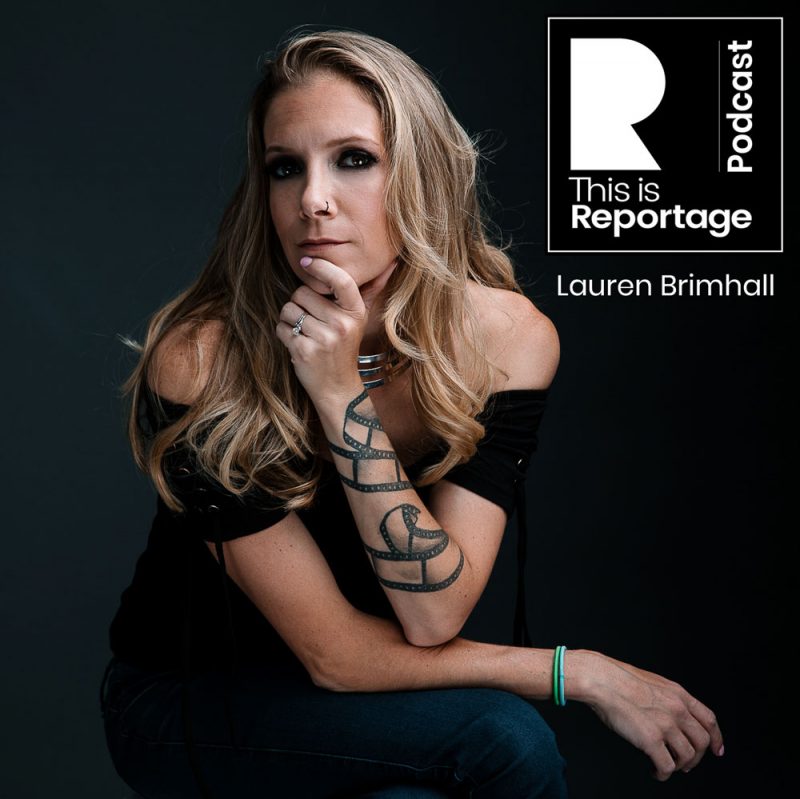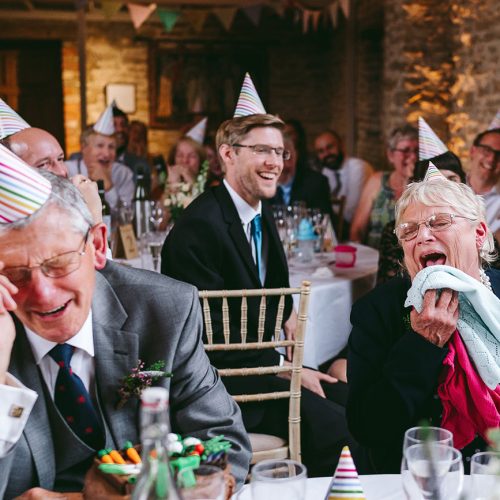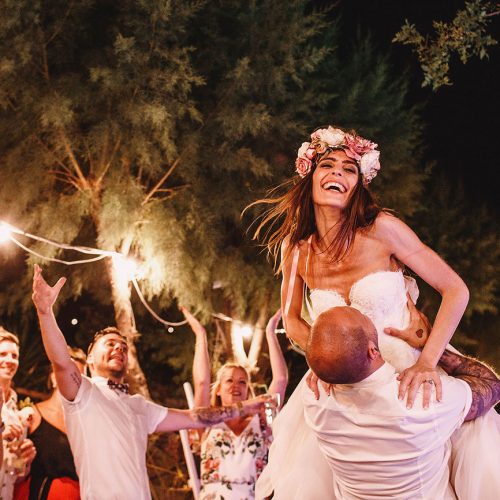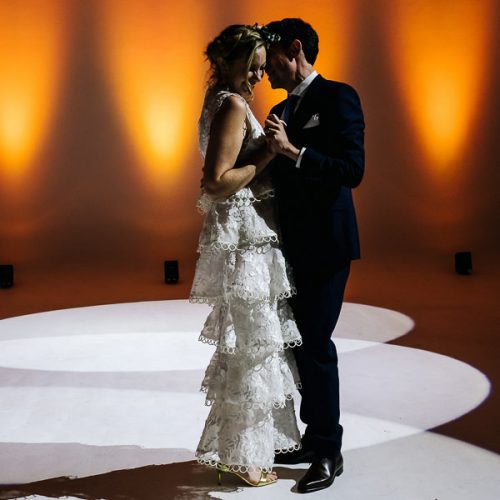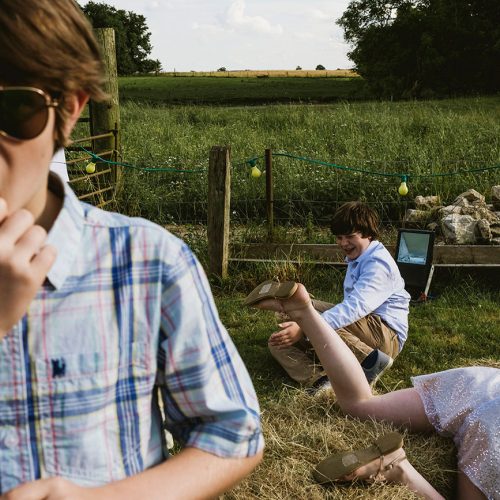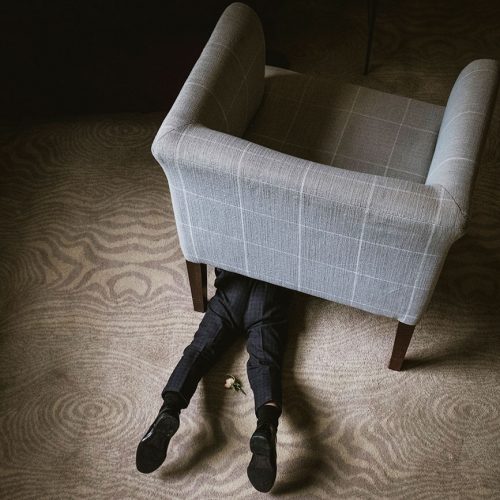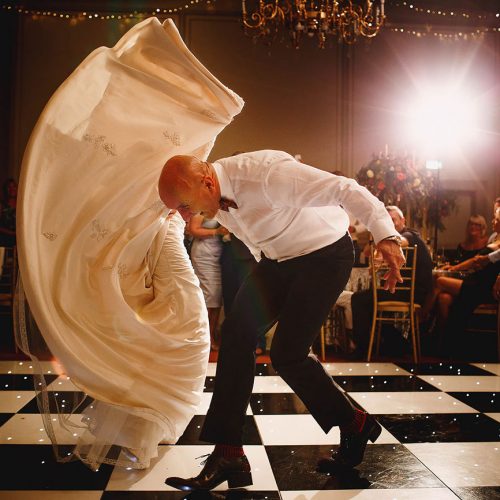Podcast Episode 16: This is Lauren Brimhall
A real pleasure to bring you the fantastic Lauren Brimhall for Episode 16 of the This is Reportage Podcast! Lauren is one of the best wedding photographers in the USA; was joint-first in the US on This is Reportage for 2019, and has won countless awards from other associations too. Stick with us today as Lauren shares all about:
- what she does in the quiet season (including writing a young adult novel),
- her journey from journalism into weddings,
- the importance of capturing memories,
- the benefits of wedding photography when it comes to being a mum,
- the things she keeps in mind whilst shooting,
- perseverance and work ethic,
- why she advises against outsourcing,
- learning from her own work,
- how some shots can appear staged even if they’re completely natural,
- what ‘success’ means to her,
- the importance of personality in weddings,
- why she enjoys teaching,
- the turning point in her career,
- what annoys her in the industry,
- the story behind a specific Reportage Award of hers (the one with the bear),
- advice for people who have been shooting for a while but aren’t happy,
- our supportive community,
- what she’s afraid of,
- the dangerous and/or bizarre situations she puts herself into to capture moments,
- the most challenging part of our job,
- the power of referrals,
- the first thing she does after a wedding,
- what makes a good wedding photographer,
- and much more…
As ever, we have lots of ways to listen to our Lauren Brimhall interview: iTunes/Apple Podcasts, Spotify, Google Podcasts, YouTube, and here in this post (where there’s also a full transcript).
Thanks to everyone who has left us a review on iTunes so far; so kind, and we really appreciate it!
Alan Law: Hey, Lauren. How you doing?
Lauren Brimhall: Hey, Alan, I’m good. How are you?
Alan Law: I’m really good, thank you. Yeah, super. Where are in America are you?
Lauren Brimhall: New Jersey.
Alan Law: Oh, okay. Cool. Do you know, I’m really bad, I’ve been to America six times now, but only to Las Vegas. I’ve never been anywhere else in America. It’s bad, isn’t it? I really need to visit more.
Lauren Brimhall: Well, WPPI, I guess.
Alan Law: Do you go to WPPI?
Lauren Brimhall: I’ve been there once and, weirdly enough, it was before I was a wedding photographer. I was working for some photography magazine so I was there for that as an employee.
Alan Law: Oh, wow. Okay. You’ve not been back since doing weddings yourself, no?
Lauren Brimhall: No, no, it was just a bunch of people selling stuff, so I didn’t particularly … at least then, not being into the workshops that happen and stuff at that.
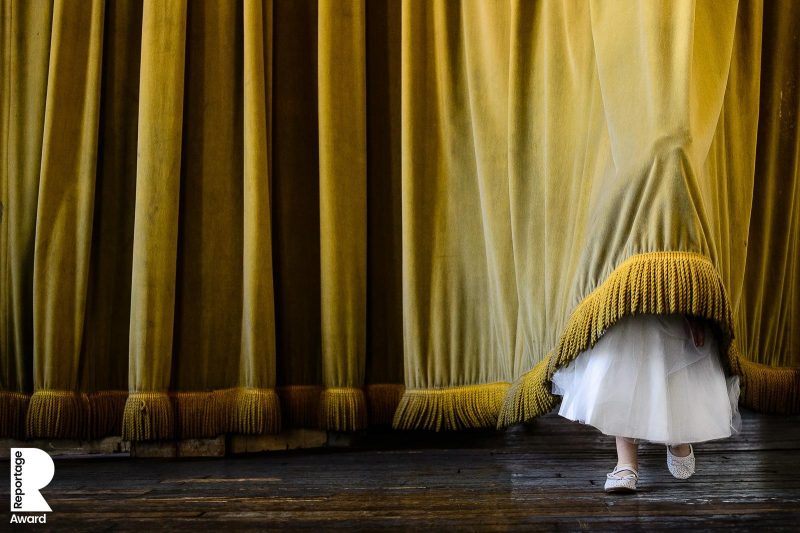
Alan Law: Yeah. What are you doing at the moment? It’s quiet season. What do you do in the quiet season?
Lauren Brimhall: Oh, man, what haven’t I done? Sometimes I paint. I’ve written an entire young adult novel called Zoe Zombie-
Alan Law: Oh, wow.
Lauren Brimhall: … which I’m still … I found an agent for it, but it never really panned out, but it’s still 35,000 words of my life from a couple of years back… Crochet giant blankets. I know I’m like old lady like that, but …
Alan Law: You keep busy by the sounds of it. That’s cool. Wow, that’s cool, a young adult novel.
Lauren Brimhall: Yeah. I like it, I don’t know.
Alan Law: What was the synopsis? What did you say it’s called, Zoe Zombie?
Lauren Brimhall: Zoe Zombie. It’s about a teenage girl who she’s dead and she’s a zombie, but obviously, she’s still alive so she dresses as a human to go to a regular school with regular kids, so she has to put on this perfume and makeup and cover up all her deadness. And, yeah, and she actually is supposed to live in this world where everything’s dead that is alive, and everything that’s alive is dead, so it’s like a bizarro world and, I don’t know, they fight this … It’s, I don’t know, in the words of Twilight/Volturi kind of deal. It’s complicated, but …
Alan Law: Oh, it sounds really cool. That sounds great. Congratulations, by the way, on being … you were joint first in the United States for This is Reportage in 2019, which is awesome. Congratulations.
Lauren Brimhall: Thanks, yeah, your group is awesome. I really enjoy … the restrictions that you put on the award winners having the authenticity there is what really attracted me to this group and especially the Story Awards, which isn’t that what we’re all aiming for is just to be better storytellers?
Alan Law: Oh, yeah. That’s cool. And it’s great having you part of it and, yeah, you did so well last year, it’s awesome. Take us back to the young Lauren, when you were young. What were you like at school? Did you always want to be a photographer?
Lauren Brimhall: Oh, no, but I was always creative and reasonable at the same time. I wanted to be an artist of some kind or a writer, but write novels and stories and stuff like that, but I realized that I would never make money doing that, so I decided to be a journalist and that’s what I majored in in college. I did take photography there. I had a fine art minor with photography and other stuff like that. And my first job out of college was writing for a photography magazine. Yeah, I met some of the best photographers of 2005, and when digital was really first starting to come into its own, like David Jay, and I interviewed them for articles. I went to WPPI and I got really interested, but it wasn’t until I got married and had to pay a fuckton of money to my own wedding photographer that I thought, “Maybe I can make money at this,” and I started doing it for a living. I quit my journalism job and that was a pretty good job.
Alan Law: Wow. yeah, that’s a big salary to leave behind, I guess, as well.
Lauren Brimhall: Yeah. I was a managing editor for a magazine called Government Foodservice in New York when I stopped writing, so it was-
Alan Law: Oh, wow.
Lauren Brimhall: I was 25.
Alan Law: Oh, wow. Okay. And how did you get your very first wedding then? Do you remember?
Lauren Brimhall: Oh, my gosh, so much work. Well, I didn’t want to just go shoot a wedding without any experience or training in weddings. I knew I didn’t have the right equipment, so what i really wanted to do was second shoot first and I couldn’t find anybody in New Jersey or in Pennsylvania, I was living in Pennsylvania at the time, who would let me come second shoot for them. They were like, “Oh, you haven’t done your time. Why would I help you? I had to spend so much time learning all of this stuff.” I ended up flying to Alabama on my own dime to shoot one of my first weddings with a guy named Mark Turner, and I paid my own way there, I second shot for free, just to learn. That was one of my first weddings and then, after that, I found some people. I was really cheap, to the point I don’t want to admit it.
Alan Law: Yeah. No, it’s a good way to start though, isn’t it? It’s a good way to start.
Lauren Brimhall: Yeah. And some people whose engagements I shot finally talked me into shooting their weddings, like, fine, I’ll buy stuff, some flashes or something.
Alan Law: Well, it must’ve gone well as well. I love this quote on your TiR profile. You said, “I’ve been photographing moments since before moments were a thing. My very first wedding was awful because I did just that, but didn’t yet know how to do it right.” What was that first wedding like then? Is that the first wedding you shot on your own or …
Lauren Brimhall: Yeah. And, I think actually, that was the one that I shot with … I was second shooting so I was still shooting with Mark Turner and I shot everything on aperture priority. And I was still doing moments and some of the stuff is my weird sense of humor. I was taking pictures of them cutting some greenery that they didn’t want off of their bouquets and trying to find creative angles for it and it was all crap, focused on flowers and some of the expressions in the background kind of stuff, but I’ve always been interested in just capturing what’s unique about people’s weddings and not just the stereotypical stuff. Even if I look back at my very first weddings, they all show some weird shit like that. It’s in there. It’s been in there from the beginning and so I’ve always loved the different.
Alan Law: That’s cool. That’s so important, the difference though, isn’t it? And did you always know then really that you wanted to approach weddings in a documentary way or did you experiment with different styles or did you always know you were going to be documentary?
Lauren Brimhall: I was pretty much like, “What is a style?” I wasn’t trying to identify myself or my style or anything like that. I just really liked taking pictures. My favorite thing to do before I was a wedding photographer was to go out drinking for hours and hours and then come home and look at my photos the next day-
Alan Law: Oh, cool.
Lauren Brimhall: … trying to get sobered up and be like, “I don’t remember this happening. This is hilarious,” and post it all on Facebook. I don’t know. It’s just part of who I am. I love reliving memories that would’ve otherwise been lost if there hadn’t been a camera there.
Alan Law: That is cool. And now you’re giving that to other people. If they drink a bit too much in their wedding, they’ve got the photos to see what actually happened.
Lauren Brimhall: That makes sense to me because a lot of the moments happen between guests or they’re distracted because they’re exchanging rings, they don’t even see what’s going on off to the side there and some dog is licking a flower girl or they can’t see everything that we can see at the same time, so I love giving them an entirely different aspect, a different version, of their wedding than the one that they probably will remember. And my version will eventually become their version, which is really interesting because I’ve been married for 10 years now and I literally remember nothing that wasn’t photographed.
Alan Law: Right, yeah. That’s true. I never really thought about it like that, how, yeah, your version becomes their version. That’s quite a power almost really.
Lauren Brimhall: It really is and, as much as we like to think in that moment, “I’m never going to forget this,” the sad reality is that our brains cannot hold onto this stuff for that long. You think of any one day, the most important day in your life more than 10 years back, and you’re going to remember bits and pieces. It’s like nothing. We give thousands of photos, we give thousands of memories back to people.
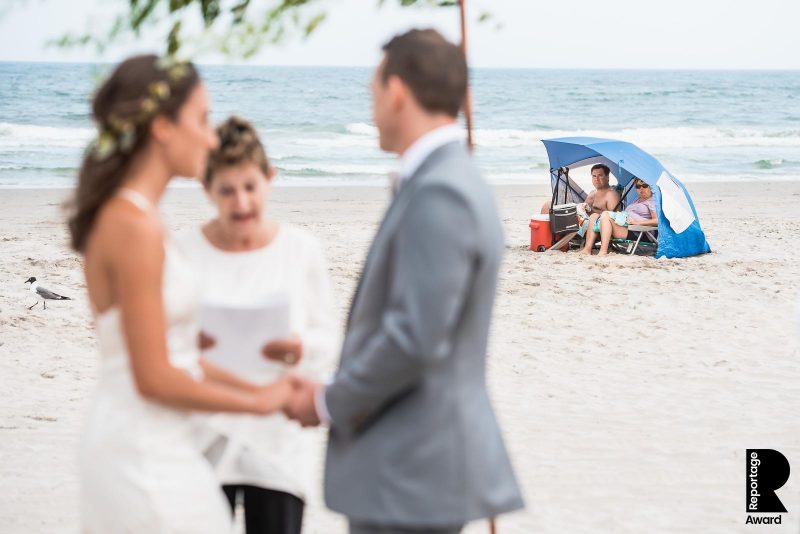
Alan Law: That’s true. Yeah, that’s cool. That is a great way of looking at it as well. That’s really cool. Are you still in touch with your particular wedding photographer?
Lauren Brimhall: Yeah, actually. I love him.
Alan Law: Oh, really? That’s cool.
Lauren Brimhall: Yeah, his name is Jared Wilson and he is in Colorado. Hi, Jared, if you’re listening.
Alan Law: Hello.
Lauren Brimhall: But, yeah, he did a great job. Documentary, I didn’t feel like the PJ style was as much of a thing back then, but I did get a few gems. My favorite photos even, looking back, are of my two sisters, and we have this tumultuous relationship, crying tears of joy at my wedding, like, “Oh, they do love me.” I still have those few moments to hang onto because of him.
Alan Law: That’s cool. That’s very cool. Let’s change tack slightly. Other than wedding photography, what are you really passionate about?
Lauren Brimhall: My kids, my family. You’re always just trying to be better than the generation before you. You brought up family earlier, and I think that I’m just trying to be a good mom and be a good provider and that’s pretty much the most important thing to me. The photography is a means to that, for sure. It does fulfill my creative soul, which I need, but, yeah, it’s for them too.
Alan Law: Oh, yeah, they’re the most important things without a doubt. How many kids have you got?
Lauren Brimhall: Just two, Austin and Jackson. Jacksie is five and Austin is seven and she is just this talented little pip, and he loves dinosaurs and is completely obsessed with them.
Alan Law: That’s cool. Aw. I’m similar. I’ve got a boy and girl, five and eight, so very similar ages.
Lauren Brimhall: Oh, yeah. No, it’s a really cute, magical age.
Alan Law: It’s cool, isn’t it? Part of me wants them to stay that age.
Lauren Brimhall: I know. I know.
Alan Law: How do you find that balance between being a mom and having such a busy job as a wedding photographer?
Lauren Brimhall: I am grateful for my job as a wedding photographer because I’m here even though I’m only partially present if I’m sitting here editing photos or answering calls or whatever. I still get to be in the same house with them, the same space. I can go to them for hugs anytime I want. They can come here if they get hurt and bruises and I’ll give them love and Band-Aids, and it’s just I still feel more present than I would be able to be if I just wasn’t here at all. As much as I feel like, “Oh, man, I really need to get away from this computer,” I’m just happy for whatever, I guess.
Alan Law: Aw, that’s cool and that’s a great way to look at it as well. And, often, we complain about how busy we are, but as a father, I feel lucky that I’ve seen my kids more than a normal nine-to-five dad really, who sometimes only comes home after work and sees their kid just going to bed. I’ve seen them a lot, especially when they were tiny. There’s a lot of good sides there.
Lauren Brimhall: Yeah, definitely. And my husband works odd hours too, so if I had a nine-to-five, we’d pretty much never see each other and I don’t know if that’s a good thing or a bad thing.
Alan Law: That’s funny. If you won the lottery, what would you spend it on?
Lauren Brimhall: This is a funny one. Oh, man. I’m not the type of person who even wants things. Honestly, I don’t … my husband has to really get creative at the holidays, birthdays and Christmas and stuff, because I can’t think of anything that I really want for. I think I would just save it. I would just save it for their weddings and their colleges. That’s pretty much what I save all my money for is for my kids.
Alan Law: Aw. You sound like a super mom. It’s lovely.
Lauren Brimhall: No, I’m just very responsible. I don’t know. That would be most of what I’d spend it on.
Alan Law: Oh, it’s lovely. I think that’s a lovely answer. That’s really good. Going back to you shooting again, do you have any particularly helpful philosophies or thoughts that you keep in your mind while shooting?
Lauren Brimhall: Definitely. I have quite a few that I like to think about that really push me to work a little bit harder at every wedding, and one of them is that a award-winning moment happens at every wedding. There are maybe 500 guests at each wedding. Obviously, we can’t be everywhere at once, but if you think about all of the moments that happen, all of the expressions that are happening, every little thing that’s going on at that wedding with those people interacting with each other, somewhere in there, there was an award-winning moment. It’s just a matter of how hard you can work to capture it. And I really push myself to follow another philosophy, which is try to photograph the entire wedding from start to finish without taking breaks.
Alan Law: Wow.
Lauren Brimhall: We spend so much time vegging out inside our own heads, walking around, observing, eating a cocktail or a food or whatever, but I try to just see what happens if I shoot constantly and look for moments constantly, and it doesn’t matter if it’s a guest or the bride and groom. We know when we’re supposed to be on. We know, during the ceremony when they’re exchanging rings, we’ve got that camera to our face. It’s all those other moments when we’re just mentally resting where I try to force myself to keep going, and it’s definitely really hard to shoot an entire wedding start to finish that way.
Alan Law: Yeah, intense. That’s cool though. And, actually, that reminds me of the … you wrote a really good This Is How piece for us about a shot of the flower girl peeking through her dress. It was about you sensing that you might be able to get a really great capture here and your perseverance throughout the day to get it, and I guess that’s what you were just talking about there, really, your intense perseverance and just working nonstop until you get what you’re looking for.
Lauren Brimhall: Yeah. You have a kid with as much personality as that kid had and then you have this huge, awesome, tulle-y dress, and I love texture, I love things coming at my camera, I love spontaneity, I love expressions, I love children. I knew somewhere in the course of that day that some amazing award-winning moment was likely to happen and it was just a test of whether or not I was going to be there to capture it. And, obviously, I just can’t follow one kid the entire day, which is the only thing that irks me, but I just kept with it. It was one of the last five shots of my night and I didn’t think I got it until I went through my photos. That’s another tip that I like to give people. Go through your own photos. You never know what’s in there. We take so many photos. If you outsource them, especially if you don’t even cull them yourself, you have no idea what’s in there.
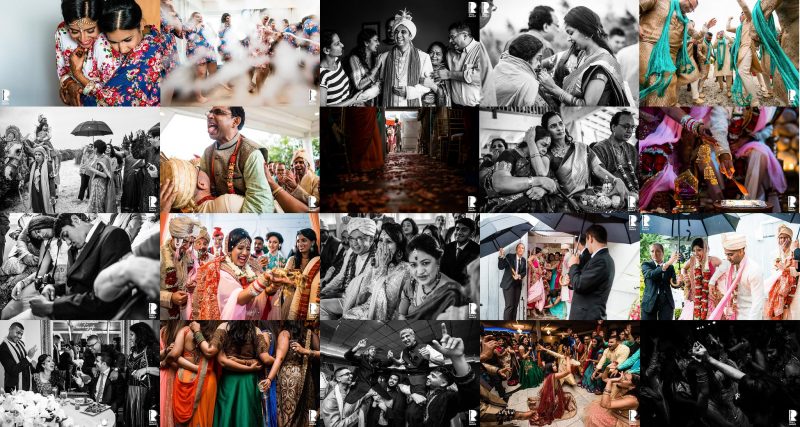
Alan Law: That’s true. I can’t imagine. I understand why some people outsource editing, but I don’t understand how people outsource their culling as well. Some people do, don’t they? I just can’t understand that.
Lauren Brimhall: Too much trust for me. But culling is a great process for really forcing yourself to improve because you have to look at all of your mistakes and say, “Why did I do this? Why did I make this mistake? What’s wrong with this shot?” Look at all your settings and ask yourself, “Why didn’t this one come out?” Even if it’s not a good shot, I’m like, “Wait, why didn’t it come out? It should’ve come out. They should all come out.” It’s like-
Alan Law: That’s really a positive way of looking at it. That’s really good. I should have that in my mind. When I do my cull, it’s like soul destroying. It’s like, “Oh, man, I don’t know what I’m doing. Rubbish.” And then when I get a few good ones and when I bring them into Lightroom, then it’s like, “Okay, I could do this job now.” But, yeah, I don’t like the cull. How long does it take you to cull a wedding?
Lauren Brimhall: I don’t know. I can usually cull a wedding in about two days, and that’s with one day for my shots, because that’s just my mental stamina, I can only go so long, and then one day for the second shooter shots, half a day for the second shooter shots really, but then I find something else to do, so two days and then the editing. And I average, I don’t know, 300 to … my max is 450 photos a day. I’m so slow. It’s painfully slow. Again, I’m looking at every shot and I’m not just editing it, I’m asking myself, “How could this shot have been better?” And my brain just goes off on this huge tangent, like, “Oh, I should have photographed it like this. Oh, man, what if I had gone over here and done from this angle?” or whatever. And then the next wedding, maybe something similar arises and I’m able to put that thought process to good use and make the next version of that shot even better. It’s worth the time, I think.
Alan Law: I think that’s awesome. I think that’s such a great tip because I think I’m guilty of it. When I’m editing, I can sometimes almost zone out. I think I’m not thinking of how could I have done this better and perhaps I should be. I think that’s really good advice.
Lauren Brimhall: Yeah. When you’re thinking about photography all day every day, you have these kinds of thoughts. Last year, I gave myself a little bit of a mental break because it is so overwhelming. It takes over your life, but, yeah, I’m getting more back into it now and I’m enjoying it as well.
Alan Law: That’s good. That’s good. Some other photographers, when they edit, they listen to podcasts or they have Netflix open on another screen. Do you do that or are you just very solely concentrating on the-
Lauren Brimhall: Yeah. No, I don’t even listen to music, although I think that might be nice, but I don’t listen to music. I don’t watch podcasts. I just, if I’m editing, I’m thinking about the photos. Like I said, I’m analyzing the photos, I’m more than just editing them. I’ve seen complete crap shots get turned into gold because I’m like, “Let’s go this way. Let’s do this.” The flower girl shot needed a lot of editing because the light was poor or I would’ve seen it sooner, I would’ve known when I took it, but it was a candid moment. It was actually real, which is why I don’t think it’s won a TiR award yet because nobody believes that it’s actually a candid photo, but, trust me, if you saw the original, you would believe me.
Alan Law: Oh. I know from your This is How piece and you included loads of your contact sheets and stuff and all the surrounding images, so, yeah, I know that’s not posed. But it’s a good point actually because, sometimes, not just that shot, but other people can sometimes think that images are posed just because they look so good, but it’s totally valid that sometimes great moments are captured and they’re still totally natural, but sometimes people just think they’re posed because they’re so good.
Lauren Brimhall: Definitely. Even my bloody wedding dress shot, the one with a little bit of blood on the edge of the wedding dress and her ankle is bloody with the dirt on the dress, everyone thinks that she stopped and posed for me, but she was literally jumping up and down on the dance floor. I wasn’t trying to get that shot. I was trying to get the underskirt of her in the air as she was jumping, and I caught that one on the land and I didn’t see it til later, again, when I culled the photos, and like, “Holy crap, she’s bleeding. This is fantastic.”
Alan Law: Yes, blood.
Lauren Brimhall: Yeah. Oh, yeah, cross edit done, it was awesome, but it was really totally candid. Most of my stuff is. I don’t like telling people what to do because, when you tell people what to do, and I got to give JD Land credit for this, because he is awesome, but when you tell people what to do for a moment photo, the only memory they have of that photo is that you told them to do it. That’s not giving somebody a memory back. That’s giving somebody garbage, staged garbage.
Alan Law: Yeah, totally. I totally agree with that. That is probably my main ethos of the day, yeah, totally. Oh, cool. Let’s change tack again slightly. If you could be someone else for a day, living or dead, who would you be?
Lauren Brimhall: Oh, my gosh. Oh, man. One of my cats, because they get more affection from my husband than I do.
Alan Law: Oh, no. That’s funny. That is funny. How many cats have you got?
Lauren Brimhall: Three. Even the fat one, I could be a fat cat and still get more snuggles.
Alan Law: That’s funny, actually, you mention your cat because I interviewed another photographer recently and he’s afraid of cats. He has a proper fear of cats.
Lauren Brimhall: I’ve heard of this, yeah, yeah.
Alan Law: I wonder what the name is.
Lauren Brimhall: I have no idea.
Alan Law: I was like, “So you don’t waste time on the internet by watching videos of cats then?” He was like, “No, no.” And what does it mean to be successful to you?
Lauren Brimhall: You know what they say, living well is the best revenge. A lot of things happen that are negative in people’s lives and, right now, I’m going through some things with my career where someone is trying to hurt me, but that always just motivates me to just do even better, win more awards, and go and make more people happy and book more weddings and I’m just going to live better.
Alan Law: That’s cool, yeah. That’s a-
Lauren Brimhall: To me, that’s the best. It’s not like I have to be a top photographer in the world or something. If I’m working and providing for my kids, I’m living well and I’m happy, then that’s all I need. That’s success.
Alan Law: That’s cool. I think that’s, honestly, it’s such a great answer. It really is. It’s awesome. You sound really happy.
Lauren Brimhall: I think, for the most part, I’m a pretty happy person. When I’m in a social environment, I obviously have my days, but I like talking to people. I spend so much time alone at this computer and with a seven-year-old. She’s the best conversation that I have when my husband’s gone, so I like talking to people.
Alan Law: No, that’s cool. Because, as you say, it can be quite a lonely industry, really, this job.
Lauren Brimhall: Yeah, it definitely can. I do miss that aspect of working 9:00 to 5:00 was just having people in the office to talk to. But on wedding days, personality is a lot of it too. Your personality is really driving a lot of the moments at the wedding, even if you’re not directing things. If you’re happy and you’re laughing and you’re giddy and you’re silly or whatever, they’re going to get rubbed off on a little bit. I can’t help if I smile or laugh at moments, and laughing is contagious, so it makes people more comfortable being themselves when you’re so open and it makes them open up to those moments, to having those moments in front of you.
Alan Law: Yeah. Honestly, I just nodded. You can’t see me, but I’m nodding to all of that. I think that’s really great. That is so important. The personality side of it is vital. But if you’re the opposite, if you’re scowling or looking like you didn’t want to be there, people would pick up on that as well and you wouldn’t be able to get them off their guard and get the moments.
Lauren Brimhall: Oh, definitely, and that’s one of my tips I like to teach too is make fast friends with old people. They hate their picture taken, but you know that the bride and groom want grandparents’ photos. You never know what’s going to happen after the wedding and so they’re VIP. I will break them down. I love old people. I can get them talking and joke with them, and kids too. I love talking about my kids. I ask them their ages and play with them. I literally spend 15 minutes at a reception playing a card game with kids. The two little kids that are under the table, it was a Fearless award that I got, where just their legs are sticking out. I was under that table with them moments before just playing cards with them, making fast friends with even their parents because their parents like, “Yeah, go do this with them,” and, yeah, it’s personality is definitely big.
Alan Law: Yeah, totally. That’s cool, very cool. And you mentioned about you’re teaching there. You teach workshops and you’ve spoken at conferences and things. Do you enjoy that side, the teaching side?
Lauren Brimhall: Definitely. I really enjoy it. I think working with Rich showed me that I definitely need to come out of my shell a little bit more because he is so extroverted and I’m an introvert struggling to be more extroverted. Who was it that, Philippe Swiggers, who spoke at that conference, yeah, and I was like, “Oh, my gosh, you’re just like me.” Yeah. But, yeah, I’m working on it and I do think I have really valuable things to say and I really enjoyed the students. I’m still in touch with all of them. That was my one real teaching experience so far, but I’ve seen some great work from them since.
Lauren Brimhall: Oh, my gosh, Cathy, Cathy Hoogenboom, she reached out to me and like, “This shot is fantastic!” She’s like, “Look, I took it that was because you told me to take it that way,” because she had such a similar shot during the workshop, and I was like, “Why are you over here? Get in their faces. Be over there,” and it was just great. I was really excited to see the success of somebody else and have them say, “Oh, my god, I did it that way because of you,” and you’re like, “Ah.”
Alan Law: That’s really cool. That’s really rewarding, isn’t it? That’s really cool that you’ve had an effect on someone like that is so cool.
Lauren Brimhall: I’m really happy that I had that opportunity, so working on it.
Alan Law: Yeah. Are you going to do more of that? But you saying about being an introvert, you can still be an introvert and still do so well. I think you’ve just got to be yourself. You don’t sound very introverted on this call, by the way.
Lauren Brimhall: Oh, yes. The social anxiety just comes out in the nervous laughter, but it’s still definitely there. Trust me, I’m sweating a lot.
Alan Law: That’s funny. Has there been a specific turning point in your career, perhaps a certain wedding or award or something that’s had a major impact on your career?
Lauren Brimhall: I know that this is This is Reportage, but joining Fearless was-
Alan Law: Oh, yeah, you could talk about anything, that’s fine.
Lauren Brimhall: That was the turning point in my career. I have always just learned really easily through observation and just seeing such fantastic photos. Being part of that group really made me realize how much my photos still sucked. I really wanted to create work that was going to stand up to that level and I have pushed myself since joining there just endlessly to make work that is literally just that good, and now I think it’s the same with this group and all the others where I’m just really inspired. I learn through observation. I can even look at somebody else’s shot and say the same thing that I do with my own, where, “Oh, man, wouldn’t this have been better if this happened over here or we had photographed it this way?” And I have the idea for the next time I see a similar moment, a different way of photographing it or something like that, so I definitely am constantly learning and being inspired by the work of other photographers who are just better.
Alan Law: That’s cool though. Yeah, that’s really cool. I remember joining Fearless years ago and that was a big thing for me as well. It is a big deal.
Lauren Brimhall: Yeah, it was definitely outside the box of anything that I’d ever seen.
Alan Law: Cool. Is there anything that bugs you about our industry at all?
Lauren Brimhall: Some staging obviously, which is why I’m such a fan of TiR is because I really hate how we’re getting to a point now where we’re actually staging moments to win awards, not we, because I’m not doing this, but-
Alan Law: No, of course, no, no.
Lauren Brimhall: … but some people I know I’ve heard of are staging moments. And sometimes it’s really well done and you would never know and that stuff is winning awards and it’s really setting an impossible standard for capturing real moments at times and some of the processing, which I don’t really love the clip art, the totally blacked out backgrounds or totally whited out backgrounds because it was a terrible composition. Granted, there’s one or two of those in my portfolio, so no judgment here. I think just move on from this at some point.
Alan Law: That’s funny. That’s funny. What’s a random fact about you that you think most people would be surprised to know?
Lauren Brimhall: That’s a tough question.
Alan Law: I know. Sorry.
Lauren Brimhall: Probably what you don’t know will not hurt you. I don’t think there’s anything that I want to share. There is definitely something that comes to mind.
Alan Law: Oh, really? Oh.
Lauren Brimhall: But, again, there’s a reason that nobody knows it. Let’s just say that.
Alan Law: That’s funny. We’ll save that for, in a few years, we’ll do a podcast where we’ve had a bit of alcohol, then you’ll tell the story then. That’d be funny.
Lauren Brimhall: Oh, yeah. Well, I’ll give you I have a stuffed seal collection for now. That’s what you can have.
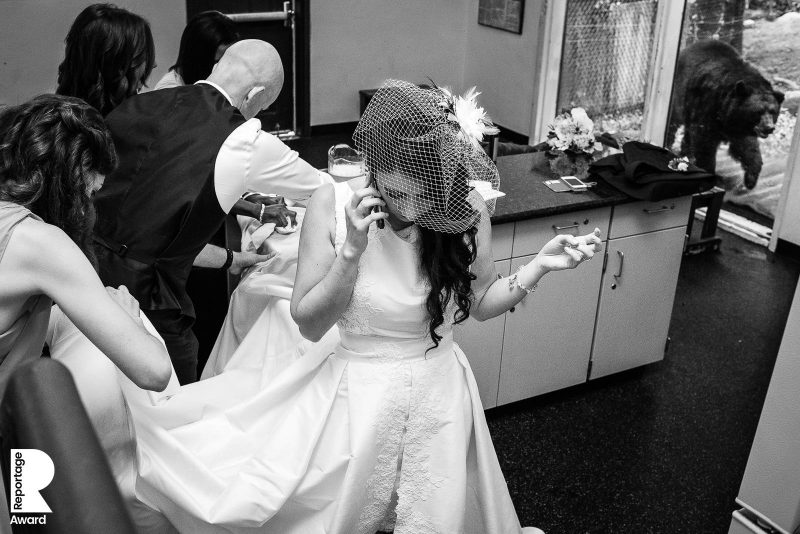
Alan Law: Really? Wow. Cool. We’ll take that. We’ll gladly take that. One of your Reportage awards literally contains a bear in it, which is awesome (above). I love the way maybe, when you look at it, you maybe don’t notice at first, and then you see it, which I love that kind of factor about it. It’s like, “Whoa, there’s a bear.” Can you tell us about that image?
Lauren Brimhall: It’s funny because somebody actually challenged that image for thinking I photoshopped it or something, like, “How does this happen?” But it was actually a zoo wedding, and it was another one of those weddings where it was at a zoo and I’m like, “I know there’s going to be Fearless shots here and there’s going to be award-winning, whatever, TiR shots here,” but I was like, “Am I going to be able to capture them?” And it was one of those moments too where I thought back to my philosophy where I should be working the whole time, I should be always trying to capture the moment. I knew that she was getting ready to walk down the aisle. I could’ve just sat at the front of the aisle and waited for her to come down the aisle, but I was like, “Gosh, it’s been five minutes. I really hate being away for this long,” so I went and I found her.
Lauren Brimhall: I found her in a little room where they were feeding the bears out of and there were just bears right up against the glass. Trust me, people were staring at those bears, oohing and aahing for the longest time, before I finally waited. I’m like, “This is boring. They’re all just gawking at the bears. It’s so obvious,” or whatever. I waited until they were totally over the bears and there was a completely separate moment happening where she had just received a call that her cake wasn’t coming. Yeah, so she’s on the phone. Her dress is dirty. They’re cleaning her dress, which is the whole reason they’re even in this room because she’s about to walk down the aisle and she gets a call her cake isn’t coming and the bear is up at the glass because that’s where they usually get food from. They’re just expecting food, so they were there.
Lauren Brimhall: I was like, “Shoot. I got to f8 or something here because everything is not going to be in focus,” so I had to put a flash on in this tiny little room and try to get a deeper focus and that was really challenging because I was backed into a corner to even get that perspective. But, yeah, I managed to get it at the last minute and then run down and capture her just getting down the aisle. But if I had just sat there the whole time and waited for her to come down the aisle because it’s easier, because it’s less work, I would’ve never had that photograph. Once again, I worked a little harder, I went the extra mile, and I was rewarded for it. I try to inspire people to work harder.
Alan Law: That’s awesome. Yeah. What a good example of your ethos paying off there. I think that’s so cool. That’s really cool. If people are listening to this on iTunes or whatnot, if you go to the site, ThisIsReportage.com, I’ll include that image there so you can see it. It’s brilliant. It’s so cool. I love the way, honestly, you don’t notice it at first and then it’s just there. It’s like, “Wow.” It’s so cool. Yeah, it’s so cool. I can’t believe some people thought that was fake.
Lauren Brimhall: I don’t know. If I was going to Photoshop something into a photo to try to win an award, a bear would probably come to mind very definitely in a real photo.
Alan Law: That’s so funny. I always ask people what bugs them about the industry, but I think that’s one thing, for me specifically, that bugs me about the industry is people just moaning about other photographers or just saying horrible things on their work or something. I just can’t stand it. I literally can’t.
Lauren Brimhall: Yeah, it’s a little bit bitter. It’s not really my style.
Alan Law: No, no. Nice people don’t do it, honestly. I just think it’s just a nice thing, just be nice, people, just be nice.
Lauren Brimhall: Although I did just talk about the whole clip art thing, but I included myself in that.
Alan Law: Oh, no, you did.
Lauren Brimhall: It was a trend. We all go through trends, clothing, fashion, whatever. I just-
Alan Law: Oh, no, of course.
Lauren Brimhall: … think it’s a trend that should keep phasing out like selective coloring and …
Alan Law: Oh, yeah. No, it’s fine. What you just said was just a general thing, I mean when people specifically say … they literally write something on someone’s actual image on Instagram or something and I can’t stand that. I just can’t.
Lauren Brimhall: Yeah, exactly. Yeah, no, if you don’t have something nice to say, don’t say anything at all.
Alan Law: Exactly. That is such a good life mantra.
Lauren Brimhall: I’m the nicest critiquer ever. I say five good things to make a good things sandwich, just put those one or two things that I think you can work on and make it a better photo, but, really, let’s go back to these great things.
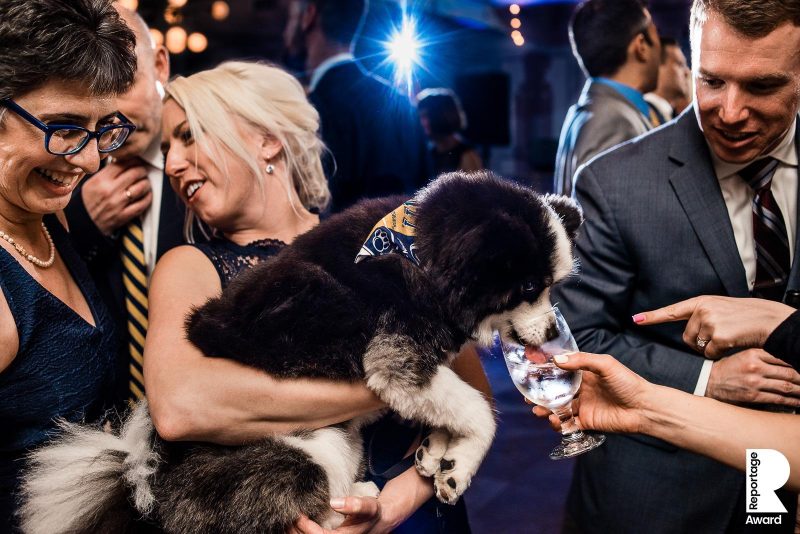
Alan Law: Yeah, that’s cool. That’s cool. What advice would you give to people who have been shooting for quite a long time, say, maybe five or six, seven years, who are maybe not happy with their work or feel in a rut or they want their career to be going someplace that it isn’t? Would you have any advice to those people?
Lauren Brimhall: I feel like I’ve totally been there and my advice would be things change every day. You never know when one thing is going to happen to make you really appreciate what you’re doing now and the opportunities that you have. For me, I was feeling like I was a little bit in a rut and somebody decided to defame me on the internet and now I’m like, “Screw you. I’m not quitting. This is not the end. You’re not deciding that. I’m going to come back. I’m going to be bigger, better than ever.” It’s happened before where you just feel a little bit of burnout and everything is the same, all the photos, it’s hard to find anything to really be impressed by, even with your own work, and you just get that way. Find something to inspire to you. Find a charity project. Charity is great. When I’m in the off-season and I’m looking for something positive to do, I like coming up with projects, and just do something that feeds your soul or gets you back to it or think of it in a way that makes it positive for you again.
Alan Law: That’s cool. I want to talk about inspiration now. What inspires you?
Lauren Brimhall: Like I said, I really just enjoy that whole concept of giving people their memories back. When I receive emails and good reviews from my clients and just these words of what the photos meant to them, that is extremely inspiring to read that. Some specific examples come to mind, but I feel like it’d be too wordy to just say everything.
Alan Law: Oh, you can give an example if you want. No, it’s all good.
Lauren Brimhall: I was dealing with this difficult client, the one who defamed me on the internet, and I accidentally CC’d the wrong groom.
Alan Law: Oh, really?
Lauren Brimhall: I CC’d … it was another John, It was just the wrong email address and I CC’d a Johnathan whose wedding I had shot this past year, and he was like, “Hey, Lauren, I hate to be the one to tell you this, but I’m not the correct John.”
Alan Law: Oh no!
Lauren Brimhall: And he’s like, “With that said, Claire and I, we effing love you.”
Alan Law: Oh, that’s cool.
Lauren Brimhall: He’s like, “Listen, if you ever need anyone to talk to, we’re here.” He’s like, “I’m going to go to bat for you,” and he’s like, “I will write you the best review there ever was on the internet.” He’s like, “I don’t believe any of this could’ve ever been said about you,” or whatever. That just made me cry all over again, a thousand times over, just to see that, while some people are not appreciative, to say the least, other people, just I mean so much to them or the work that I did meant so much to them. To me, that’s, I don’t know, really inspiring.
Alan Law: That is very inspiring. That’s very cool. And I’m sorry to hear about that problem with a client, but I saw all the comments of support from the community as well, and that’s so lovely about our industry, isn’t it, as well.
Lauren Brimhall: It definitely is. It meant so much to me, incredibly. I can’t even begin to describe because I didn’t think anybody would even care. It’s just, “Hey, signing off.”
Alan Law: No.
Lauren Brimhall: “No, you can’t go.” Yeah, there are just so many messages of love and support. I’m really overwhelmed and grateful to be part of this community. I wouldn’t have Aaron if I wasn’t part of these groups. I wouldn’t have found him. I don’t think most attorneys really care about people in our industry. It’s really hard to find, I’d imagine, somebody even wanting to deal with this nonsense. Yeah, he’s amazing.
Alan Law: Aw, that’s cool. Well, that’s all good. That’s all good. Cool. Let’s change tack again slightly. Have you ever met or photographed anyone famous at all?
Lauren Brimhall: Famous? No. Have I met anyone famous even?
Alan Law: Yeah.
Lauren Brimhall: Yeah, I don’t think I even … I’m really boring.
Alan Law: No, it’s cool. It’s just a lame question, that’s all. It’s not you. It’s a lame question.
Lauren Brimhall: Unless you consider certain photographers famous, but I’ve realized that’s only in our minds. We live in our own little world. No one outside of our industry…
Alan Law: No. We’re such a niche of a niche, aren’t we? We are really. What are you afraid of?
Lauren Brimhall: Oh, man, I’m such a hypochondriac really.
Alan Law: Are you really?
Lauren Brimhall: I think about life all the time and how short it is and what we choose to do with it, so I’m obviously afraid of having some disease or something take somebody that I love because, honestly, at the end of the day, the people we love are all that matter. Every time something bad happens, I just try to remind myself, well, everyone that I love is safe and relatively healthy and that’s the most important thing. Yes, that is my worst fear is that or, my husband, he travels a lot for a living, he flies a lot, and I’ve always been terrified of a plane crash or something. I often check the internet, I Google plane crash if he’s flying if I haven’t heard from him-
Alan Law: Oh, no. Really? Oh.
Lauren Brimhall: … just to make sure because I know it would be on the news and that’s the one thing he told me since we were dating, “If anything happened to me, it’ll be all over the news.” I’m like, “Great,” so now I’m just a Google machine for plane crashes every other day.
Alan Law: Oh, man. Oh, that is scary though. It’s when your loved ones are away and traveling, that is never nice, is it? I’m always on Find Friends to see where my wife is, even if she’s 10, 15 minutes late or something, so I understand that.
Lauren Brimhall: Yeah. No, I just worry. My grandmother was like that too, and she would always call me at college and send me cards with $5 in them and always panic if she didn’t hear back from me right away. And I’m like, ” get over it.” Yeah, now I know. I’m just like her. I’m just worrying about everyone all the time.
Alan Law: Aw. Aw. It’s because you’re so caring though, isn’t it? It’s because you’re so caring. It is. You care. It’s cool.
Lauren Brimhall: Just grateful.
Alan Law: And I love how you describe, on your site, the lengths you’ve been to to get the shot, such as you say lying under a horse no one’s holding, you’ve been stung by bees, and more. What’s the most dangerous or bizarre situation you’ve put yourself into to capture a moment?
Lauren Brimhall: Oh, no, there was a really good one that’s not on there. Those are definitely legit, but there was one time, this wasn’t even almost to get the shot, this was to get a piece of equipment back, I climbed down an elevator shaft-
Alan Law: Oh, wow.
Lauren Brimhall: … this old, rickety elevator to get a photo and I put my flash up on a ledge with the trigger on it to do some OCF stuff, there was no place else to put it and you couldn’t fit the light stand in there, and it fell down the shaft so I went down the shaft to try to get it back and the elevator started moving.
Alan Law: No way.
Lauren Brimhall: I was right at the bottom. It was like coming down on my head and then somebody ran in the elevator and literally hit the emergency stop button and saved my life. There was no space between the bottom of the elevator and the bottom. I would’ve legitimately died, but-
Alan Law: That is like something from a horror film or something.
Lauren Brimhall: I know. I still have nightmares. But, yeah, I’ve definitely been under the horse. I was laying on my back and like, “Nobody’s holding this horse.” He was old. He didn’t care. I just lose all sense of self-preservation. I’ve almost been hit by cars more times than I can count. The bicycle shot where they’re … the slow shutter in the street, I’m in the middle of the street laying on the floor in the street, so-
Alan Law: That’s cool.
Lauren Brimhall: … pretty much stupid. I don’t recommend it.
Alan Law: But you getting the shot and you’re getting the different shots that people who don’t that, they don’t get. It’s awesome that you do that.
Lauren Brimhall: Yeah, you get in the zone and you’re just like, “Ah, I have to get it. Gotta get.” I think it was Susana Barbera, Barbara, I don’t know how to pronounce her name-
Alan Law: Yeah, I think you got it there.
Lauren Brimhall: … yeah, she gave a speech at Fearless, it was the first Fearless conference that I ever went to, and she was talking about how she gets in the zone and she has to get the shot and she’ll be running and trip over somebody and just pop right back up and just keep running. And I’m like, “Oh, my god, that’s so me.” I guess we have that in common.
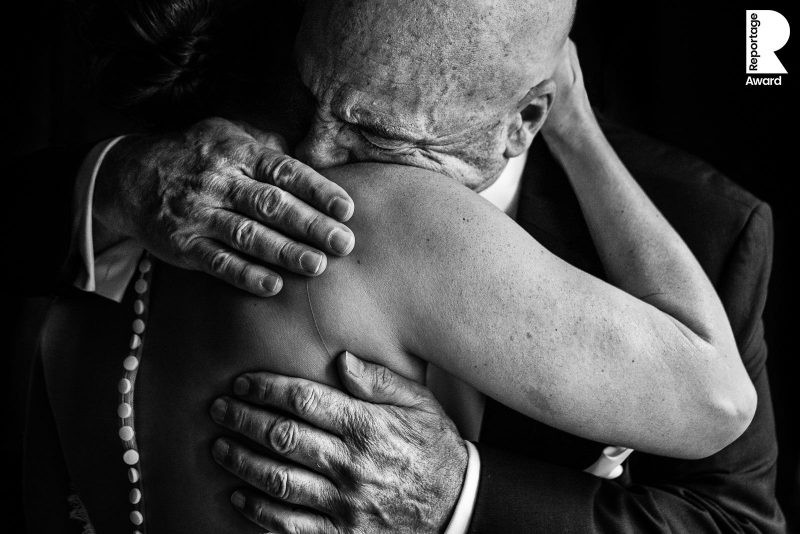
Alan Law: No, that’s cool. And were you always like that? Because I think quite a lot of wedding photographers aspire to be like that, but they’re a bit self-conscious or they’re thinking, “What are the guests going to think of me if I’m lying on the ground or something?” Did you always not really care about that or did it take you a while to get that kind of confidence?
Lauren Brimhall: I can only tell you how many reviews that I have where people have cited the crazy shit that I’ve done for photos because they love it. They’re just so appreciative that you’re working that hard. They don’t care if you come up completely covered in hay or dirt or you’re barefoot for the rest of the night because you walked into a lake with socks and shoes on to get a photo for them. They really are just so grateful to have somebody working that hard and I do not give one flying you know what.
Alan Law: That is so cool. That’s perfect. Honestly, that is so good. That’s great. I was going to ask, do you get nervous at all shooting weddings or do you not?
Lauren Brimhall: Oh, before every wedding, absolutely, total anxiety attack the whole way there. It doesn’t even matter that I have shot, I don’t know, 300 weddings or something like that.
Alan Law: No, it doesn’t go.
Lauren Brimhall: Yeah. I’m just super nervous. I just want to do the best job that I can and I hope that there are really amazing moments to capture. That always excites me a little bit, but then I’m nervous because I have to spend a whole day with these people. And the verbal diarrhea, it works for me, it gets people comfortable, it does, but then you get the wrong client and they don’t find it so funny. I have all these laughing shots in my portfolio, and not because I tell people to laugh, but because I make people laugh, but sometimes there’s the one in 200 that just is going to be offended or something like that.
Alan Law: No. Yeah.
Lauren Brimhall: I have to watch everything I say, but at the same time, still try to be myself, which is a really hard balance.
Alan Law: Yeah, that is a hard balance. I still get nervous shooting weddings as well. It’s funny. I thought it would go after seven years, but it doesn’t, it just doesn’t.
Lauren Brimhall: No, it never goes.
Alan Law: No. I do envy the people who don’t get nervous. I know they say nerves are a good thing, but, oh, it just never feels like a good thing.
Lauren Brimhall: I wonder if those people care-
Alan Law: Yeah, I guess maybe.
Lauren Brimhall: … are they’re caring really?
Alan Law: Yeah, I don’t know, or they’re just super human. They’ve got some super human non-nervous skills. I would like to have that definitely. What do you find the most challenging aspect of our job to be?
Lauren Brimhall: I think the wedding day itself. For me, I’m a sensitive person, so, yeah, we do take our share of abuse on the wedding day. Everybody and their mother is just barking orders at you, making requests, no one feeds you, you can’t pee. It’s mentally exhausting. You have 10 minutes for all the portraits in a church parking lot and they expect greatness, like that recent article, or whatever. To be creative that fast, have all that pressure on you. Everyone’s looking at you like, “What do we do now?” If there’s one minute of down time, one minute is an eternity in a wedding day. You don’t even have time to think and it’s just, yeah, it’s very, I think, more mentally exhausting even than physically for me because I can run. I run a minimum of 5K four times a week to stay-
Alan Law: Oh, you do? Wow, right.
Lauren Brimhall: … to do this. Physically, I know I’m there, but mentally, it’s so exhausting.
Alan Law: It’s tough, isn’t it? It is tough. And do you find it stressful outside of the wedding day? Thinking of bookings for the next year or thinking of the future, do you get stressed about that or are you just quite cool?
Lauren Brimhall: I’ve had a good bit of stress from that, but it’s been mostly surrounding relocation. I’ve moved my business across the country twice and, when I started out in the Northeast, by my second year, I had 28 weddings on the books for the next year.
Alan Law: Right, wow.
Lauren Brimhall: Just when things were easy and quiet and I was just getting all these referrals, I had to move and start all over in Colorado, and then I was just there for four years and finally things were stabilizing again and I had to move again and I had to start over again. And so we moved all the way back to the Northeast and now we’re in New Jersey.
Alan Law: Wow. That is a lot of relocation.
Lauren Brimhall: Yeah. The only times I’ve really stressed have been going to a new location, not having those referrals because that’s really the easy street. I don’t even advertise anymore. I’m on easy street now. This is the longest we’ve lived anywhere for some time, so it’s everything I ever dreamed of-
Alan Law: Oh, that’s cool.
Lauren Brimhall: … to not have to start over somewhere new.
Alan Law: Oh, man. Have a lot of your bookings, have they been, in the past, from past clients then? Is that one of your biggest-
Lauren Brimhall: Yeah, mostly referral-based. I do get the odd here and there from the organizations that I’m part of, like Fearless and ISPWP and this one. I get the odd booking there. But this year, none of my weddings even came from the The Knot, I don’t advertise there. I don’t advertise anywhere, it’s just referrals.
Alan Law: Cool. Well, that’s good though, isn’t it? That means you’re doing a good job as well if past referrals are coming to you.
Lauren Brimhall: Well, I guess it is a tricky balance. You show yourself, your personality, and people become genuinely attached and they do refer you out of their heart for years and years to come and it’s great. I still have referrals from Pennsylvania, so I still go to Pennsylvania because that’s where I started my business all those years ago. I just married off, last year, a bride whose senior portraits I shot nine years ago.
Alan Law: Oh, wow. That’s cool.
Lauren Brimhall: Yeah. If they don’t want to forget you, they never will.
Alan Law: That’s very cool. That’s really cool. What’s the first thing you do after you’ve shot a wedding and you get back home? What’s the first thing you do?
Lauren Brimhall: Oh, I make a really stiff drink.
Alan Law: Do you? Yeah.
Lauren Brimhall: I also have a hot tub or a bath. My blood pressure drops, and so I just need to get warm, get a buzz on, go to sleep, and then, yeah, have lovely anxiety dreams until morning.
Alan Law: Oh, no. Do you, literally, after a wedding?
Lauren Brimhall: Oh, my gosh, I’m so sick after weddings. I don’t do doubles anymore because it’s just physically and mentally too much for me. It’s really gross, but I sweat a lot after weddings, the whole night, and I have to change my clothes three times. After doubles, I was throwing up on the third day, that’s how hard I push myself, so I’m not doing doubles anymore this year, which is why I have a few less weddings, but I’m really happy for it because I was just so sick I couldn’t even function. And that sucks too because that’s my kids’ day off from school, Sunday. If I shoot a wedding Friday and Saturday, Sunday, they have off and I can’t even see them. I’m just a zombie, it’s terrible, so, yeah, I don’t do that anymore.
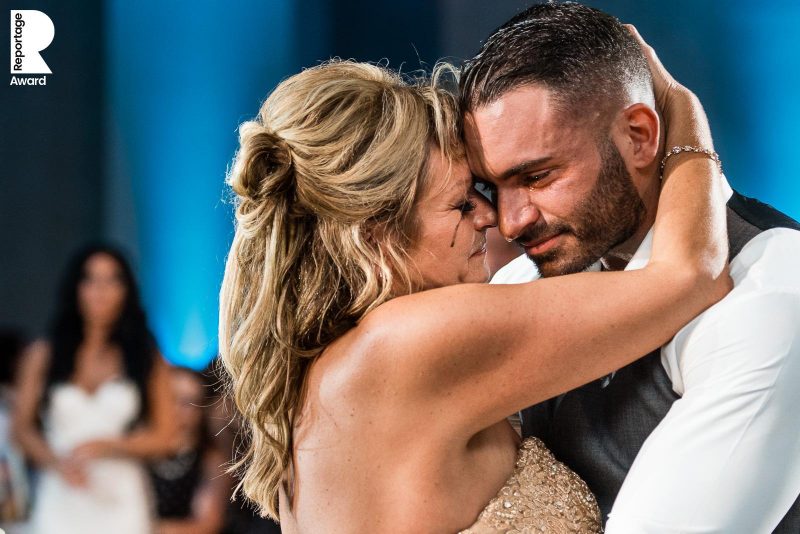
Alan Law: A very good decision not to do that anymore. Yeah. Lauren, this has been awesome. I think we’ve got time just for one more question. What, in your opinion, makes a good wedding photographer?
Lauren Brimhall: I really think it all comes back to just caring enough about what you do and about your clients and the work to really work. I can shoot weddings for the next 10 years if I want and never grow, never learn anything new, and I’ll probably take a long time to fizzle out and be out of business in the selective coloring world with these super old guys. But I think you just have to keep going. You just have to keep staying inspired somehow and staying motivated to work hard and to keep learning and to keep growing. That’s the thing that makes really great photographers is that they never stop learning. They just keep going and they keep trying to be better and better. As soon as you stop trying to be better, you’re just going to plateau and go downhill. The world will outgrow you.
Alan Law: That’s awesome advice. I was just nodding away again there. It’s a shame you can’t see me nodding, but I’m just nodding.
Lauren Brimhall: I could totally not be answering the question anymore at all.
Alan Law: Oh, no, Lauren, that was brilliant. Thank you. Thank you so much for your time there and your openness and honesty and it’s so interesting. You gave such great bits of information and advice. Thank you.
Lauren Brimhall: Thank you so much, Alan. This was a really fun, cool opportunity, and it’s good for me to revisit some of my own thoughts sometimes too.
Alan Law: That’s cool. Well, I’m glad you enjoyed it. I love talking to you. As we said, just before we came, we started recording it, it’s funny for me because, obviously, we’ve talked, but just over Messenger, and so it’s lovely to see you and hear your voice. It’s really cool.
Lauren Brimhall: Yeah. No, you have a cute accent going too, so that’s cool. I’m like, “Oh, that makes me happy.”
Alan Law: Aw, that’s cool. And I hope I get to meet you in the flesh one day. You’re not coming to WPPI, are you? But if you come over to England next time and come over to a TiR party. I know it’s a long way for you to come, but it’d be cool to meet you.
Lauren Brimhall: I was there last year. We went to England after we were in Aachen, so I really like-
Alan Law: Oh, yeah. Where were you? Did you go to London or …
Lauren Brimhall: Yeah, we were in London and then we went to Stonehenge, wherever part of England that is. I’m really directionally challenged.
Alan Law: That’s funny. I’m awful at geography as well, even in England, but, yeah, I’ve never actually visited Stonehenge, but I’ve driven past it loads. I know, I know. I’ve driven past it, and you slow down in the car like everyone else and you look at it –
Lauren Brimhall: It’s the same.
Alan Law: Did you actually walk around? Was it quite cool to walk around it?
Lauren Brimhall: Yeah. But like you said, you see it, it’s a box, you check it.
Alan Law: I love in Cornwall, which is about, what, it’s about five hours by train from London, so it’s quite far.
Lauren Brimhall: Oh. Okay. Yeah, you’re out there.
Alan Law: Yeah, but any other time, I’d love to meet you some day. It’s cool.
Lauren Brimhall: I’m sure our paths will cross somehow. I haven’t been to anything this year, but I’m going to start going to things again soon, as soon as this other nonsense is over.
Alan Law: Oh, yeah. I hope that’s over soon. I hope it is. Yeah. Awesome, Lauren. Thank you so much. Thank you.
Lauren Brimhall: Oh, thank you, Alan. Have a great night. Enjoy your weekend coming up.
Alan Law: And you. Thanks again, Lauren. Bye-bye.
Lauren Brimhall: Bye.
***********************************************************
Lauren was a total pleasure to talk to; thanks so much for this fab interview!
See more of her work on her website, or here on her TiR profile. The great ‘This is How’ piece she wrote for us, which Lauren talks about in the Podcast, is also over here.
We have lots more episodes of the Podcast (all with transcripts too, if you prefer to read) over here.
Interested in joining us here at TiR? Members receive lots of benefits, including 60 Reportage Award entries and 18 Story Award entries per year; deadline for our next contest is 23:59 GMT on 24th March 2020. See all the benefits and apply for membership.
